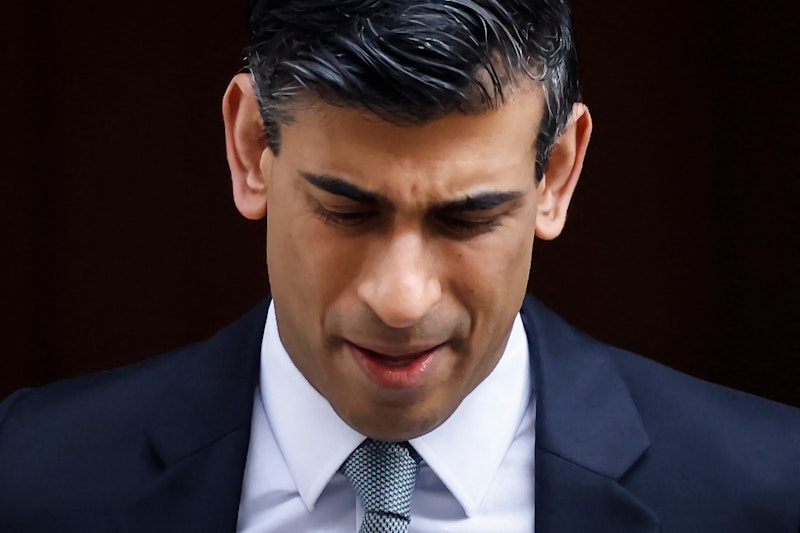There was a time when people were attracted to libertarianism because of its intellectual honesty. This was particularly true for young contrarians. Libertarianism kept explaining the world, its problems, and best solutions, in a way that completely overturned the opinions one found on NBC, NPR, CBS, PBS and ABC. It turned out that the reason so many things kept getting worse or only slowly got better—literacy rates, poverty, racial segregation, unemployment—was because the solutions, usually interventionist government policies, were causing the problems, or tied to the causes of the problems. Generations of young economists were attracted by the eye-opening new paradigm, as well as a few people in other fields—historians, anthropologists, psychologists.
Recently libertarians have lost this allure. They’ve become numerous and well-funded enough to develop their own consultant class, flaks who are paid to promote the correct conclusions, and who do so by producing the kind of fallacious arguments and ignoring inconvenient data just like the statist academics and journalists they’d so successfully dismembered a few decades ago. Though the lowering of standards of intellectual honesty among libertarians may be occurring in several areas, the leading one to me is wanting to reach the open-borders position on immigration policy. And the main offenders are the Cato Institute and its chief immigration policy analyst Alex Nowrasteh.
I know Alex a little. I met him when he was a recent college grad, I believe an intern at Cato, before he went off to get a master’s degree from the London School of Economics. We were cordial at the time. Years later I wrote an article for The Federalist, critical of open-borders libertarianism, amplifying Milton Friedman’s argument that you can’t have both open borders and a welfare state, because all the world’s poor people will move to your country and exploit your citizen taxpayers by claiming welfare benefits. I noted that in America’s 19th-century free immigration, children worked and weren’t yet mandated a taxpayer-funded education, and immigrants had far fewer welfare benefits. I pointed out that saying government “investments” in the education of unskilled immigrants was acceptable because it would produce more taxes from their presumably higher future earnings was a weird argument for libertarians to be making.
I ran into Nowrasteh at a libertarian event in Washington, D.C., around the time he had what I thought was an embarrassing appearance on Tucker Carlson Tonight, where he seemed unable to defend Cato’s position. He made a remark about how I like to “write cute little articles” and said I simply didn’t understand economics. (I studied economics at the University of Chicago, where my undergraduate teachers included Donald McCloskey, now Dierdre McCloskey, who has just become a senior “fellow” at…The Cato Institute.) Several young men I believe were Nowrasteh’s fans on Facebook dragged me with unkind, speculative and personal remarks.
Nowrasteh isn’t alone in pushing open borders, not just for an ideal libertarian society, but for the U.S. right now. Recently this advocacy is tied to a need to criticize Donald Trump’s policies. Libertarian “Never Trumpism” had become so deranged, usually among people in the consultant class whose job prospects (in their minds) depend on fitting in with “liberal” mainstream media and think tanks. The libertarian podcast The Fifth Column became a self-parody during the Trump presidency as journalist Michael Moynihan (usually insightful) predicted the complete collapse, prosecution, and imprisonment of Trump within two weeks in almost every episode of the show for years. Bloomberg columnist Shika Sood Dalmia, also a writer for the libertarian Reason Foundation and Reason magazine, was rumored to have been asked to leave when she offended Reason’s donors by claiming anyone who disagreed with her about Trump and immigration was a racist. She’s now decamped at a free market institute at George Mason University where she covers “multiculturalism” and edits a libertarian NeverTrumper Substack The UnPopulist.
While these other open borders members of the libertarian consultant and media classes beat the possibly dead horse of Trump, Alex Nowrasteh has a new policy paper out at Cato. It fails to correct any of the problems of his previous studies. Immigrant and Native Consumption of Means‐Tested Welfare and Entitlement Benefits in 2020, like earlier Cato immigration studies, won’t change minds. One wonders if Nowrasteh could come to the same policy conclusions if the analysis were conceptually sounder? If so, Cato might want to do their accounting in a way that doesn't lead critics to just dismiss them as flaks. It's a dispiriting situation since intellectual honesty is what attracted so many people to libertarianism originally.
Public school budgets aren’t considered "welfare" by Cato and aren’t accounted for. But many low-skilled, low-income immigrants who come to the US bring children with them or quickly have children, and can only work if they utilize public schools as day care. Every child they put in the school costs American taxpayers $15,000 annually on average, and more like $30,000 in some urban areas. 26 percent of US public school children are immigrants or children of immigrants.
Cato says that it doesn’t count payments to the American-born children of immigrants as welfare expenditures by immigrants but instead as welfare expenditures by Americans: "Other studies evaluating immigrant welfare participation and consumption use the household as the unit of analysis for all programs. However, we dispute this approach because many spouses and children of immigrants are native‐born Americans. Counting native‐born welfare consumption as immigrant consumption improperly inflates estimates of immigrant welfare use and deflates native‐born consumption."
In a Cato analysis, if millions of people who can’t support a family move to the U.S., have many babies, and are dependent on American taxpayers for support, this isn’t a cost of open-border policies. To everyone CATO wants to persuade this seems dishonest. They just write Cato (and libertarians generally) off and stop listening. And the danger is they’ll then discount Cato research and publications (and libertarian solutions) in all other areas.

